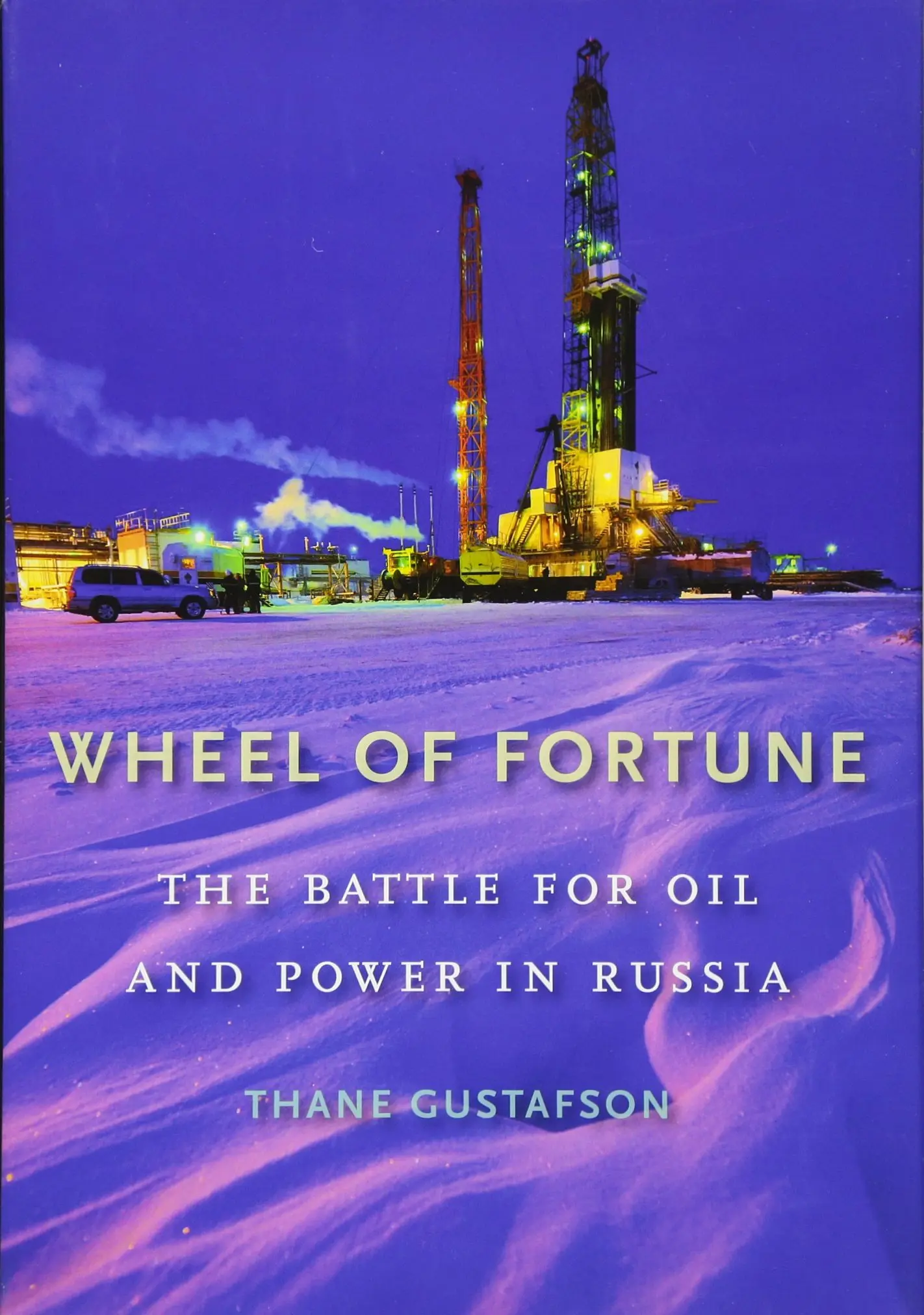Don’t know what to read over the holidays? The HCSS Bookshelf has got you covered! Our analysts and assistant analysts reveal their recommendations and favourite picks for 2017, ranging from global power politics, history, economics, to cyber security, climate change and political Islam, among others.
Rob de Wijk – Director
Destined for War: Can America and China Escape Thucydides’s Trap? (Graham Allison, 2017)
“Today, an irresistible rising China is on course to collide with an immovable America. The likely result of this competition was identified by the great historian Thucydides, who wrote: “It was the rise of Athens and the fear that this instilled in Sparta that made war inevitable.” But the point of Destined for War is not to predict the future but to prevent it. Escaping Thucydides’s Trap is not just a theoretical possibility. In four of the 16 cases, including three from the 20th century, imaginative statecraft averted war. Can Washington and Beijing steer their ships of state through today’s treacherous shoals? Only if they learn and apply the lessons of history.” (Access review here)
Paul Sinning – Executive Director
The Age of sustainable development (Jeffrey D. Sachs, 2015)
“A compelling, comprehensive and positive approach on the complexity of sustainable development ranging from climate-change to global justice.”
Frank Bekkers, Tim Sweijs and Michel Rademaker
New Model Army (Adam Roberts, 2010)
“A terrifying vision of a near future war – a civil war that tears the UK apart as new technologies allow the world’s first truly democratic army to take on the British army and wrest control from the powers that be. Taking advances in modern communication and the new eagerness for power from the bottom upwards, Adam Roberts has produced a novel that is at once an exciting war novel and a philosophical examination of war and democracy.” (Access review here)
Stephan De Spiegeleire – Senior Analyst
Homo Deus: A Brief History of Tomorrow (Yuval Harari, 2017)
“A discomforting ‘longue durée’ history of human intelligence: from the ‘spark’ that ignited homo sapiens’ brain; over today’s scientific tarnishing of our cognitive abilities (including our liberal values); to tomorrow’s dataism that may finally realize homo sapiens true potential by sublimating it in a ‘cosmic data flow’.”
The Great Leveler (Walter Scheidel, 2017)
“Another longue durée history (given the epochal changes occurring around us, people really should start reading beyond the industrial-age histories that have (dis)colored our historical comprehension) – in this case of global inequality. The book tells the history of how the “Four Horsemen” of leveling – mass-mobilization warfare, transformative revolutions, state collapse, and catastrophic plagues – have repeatedly destroyed the fortunes of the rich. HCSS has repeatedly emphasized how human violence is at a historical low, but this book shows how this decreased violence may jeopardize a more equal future – which may in turn trigger new forms of violence.”
Thank You for Being Late: An Optimist’s Guide to Thriving in the Age of Accelerations (Thomas Friedman, 2016)
“On a more positive (and forward-looking) note, Tom Friedman also published a new book about the innumerable positive developments that are still taking place in the world around us, and that are receiving significantly less attention is the current gloom-and-doom-boom. The author explains how we can overcome the multiple stresses of an age of accelerations – if we slow down, if we dare to be late and use the time to reimagine work, politics, and community (and – we would add: defense and security).”
Tim Sweijs – Senior Strategist
Carnage and Connectivity (David Bets, 2015)
“Bets makes a strong argument for the enduring relevance of Clausewitzian thought to understand contemporary conflict.”
Connectography (Parag Khanna, 2016)
“Khanna elucidates the disconnect between political and functional geography and reflects on the challenges this generates for decision makers.”
More on War (Martin van Creveld, 2017)
“One of the world’s leading military historians offers a theoretical framework to understand 21st century conflict.”
Willem Oosterveld – Strategic Analyst
The Islamic Enlightenment (Christopher de Bellaigue, 2017)
“So as to better understand ‘the roots of Muslim rage’ and how things were once different, or perhaps, how things CAN be different (i.e. that Islam and modernity can coexist).”
From the Ruins of Empire (Pankaj Mishra, 2013)
“Similar to De Bellaigue’s book, Mishra’s contribution takes a global perspective on how non-Western societies have handled modernization since the19th century by exploring a few key thinkers which hail from China and India to the Middle East. A true eye opener for those who are mostly familiar with Plato-to-NATO narratives about Western ascendancy.”
Karlijn Jans – Strategic Analyst
Code Girls: The Untold Story of the American Women Code Breakers of World War II (Liza Mundy, 2017)
“A fairly new book telling the story of a hidden army of female cryptographers that played a pivotal role in ending the Second World War. We all know the stories of the British ladies at Bletchley Park – this book tells the lesser known (but no less relevant) story of their American counterparts.”
Women Leading the Way in Brussels (Claudia de Castro Caldeirinha & Corinna Hörst, 2017)
“In the HCSS Monthly Alert of July we looked at promising global trends that highlight the opportunities they yield in the world. One of them is emancipation and inclusiveness, which is increasingly proving to be a ‘force for good’ in societies that include all communities in their processes and policies. In this area, there is a lot of work to be done on the homefront. With the EU enduring trying times because both its rationale and purpose are being questioned, it is an opportune time to reflect not only on its current diversity, but also on the types of leadership that can contribute to creating new, more inclusive options for Europe’s future. This book highlights remarkable women leading the way toward more diverse and inclusive Europe.”
Reinier Bergema – Strategic Analyst
ISIS Apocalypse: The History, Strategy, and Doomsday Vision of the Islamic State (William McCants, 2016)
“In June 2014, the world was dumbfounded by the sudden rise of the Islamic State. The terrorist organization’s brutality surpassed that of Al-Qaeda, and contributed to a swathe of military victories. While its Caliph Abu Bakr al-Baghdadi proclaimed the Caliphate, the security and intelligence community scrambled to assert the group’s origins and to explain its ability to attract international jihadists. Since then, we have been flooded with books on the organization. Yet, ISIS Apocalypse: The History, Strategy, and Doomsday Vision of the Islamic State by William McCants stands out and offers an excellent in-depth account of the rise and rationale of the Islamic State, as well as its complicated relationship with Al-Qaeda. If there is one book on the Islamic State one should read to get a good grasp of who they are and what they stand for, it is ISIS Apocalypse.”
Katarina Kertysova – Strategic Analyst
The Invention of Russia (Arkady Ostrovsky, 2016)
“Ostrovsky’s work explores how Russia transformed from Gorbachev’s freedom in 1985 to Putin’s conflicts of today. In addition to seeking to explain the change in Russian political culture since the collapse of the Soviet Union, the book depicts the central role of the media in the country’s national narrative, and the manipulation of media and language in modern Russia. It is a superb – albeit brief – recap of Soviet political, cultural and intellectual history. Even at 400 pages, it is a quick and captivating read. The book earned its author – a Russian-born British journalist who spent 15 years reporting from Russia for the Financial Times and The Economist – the 2016 Orwell Prize. Definitely worth the read!”
The Romanovs: 1613-1918 (Simon Sebag Montefiore, 2017)
“This year, the world commemorated the centenary of the October Revolution, which ended the rule of the Russian monarchy and established the first Communist state in history. Montefiore’s story offers a compelling depiction of the Romanov era, including cruelty and power struggles associated with dynastic politics, and reveals a secret world of palace conspiracy. Understanding the story of the Romanovs is particularly relevant given mounting calls in Russia to introduce a law that would give the Royal family members a special status and stimulate their return to Russia.”
Louk Faesen – Strategic Analyst
The Darkening Web: The War for Cyberspace (Alexander Klimburg, 2017)
“The Darkening Web provides a sweeping yet nuanced overview of how we got to where we are online, with ample backstory. It is a compelling book about how competition between nation states threatens the future of the Internet. Focusing on US, China and Russia in particular, the book presents chilling accounts of how state activities – ranging from surveillance to cyberattacks and information warfare – are making cyberspace a domain of conflict with far-reaching consequences for the Internet, shaking the very foundation of our societies.”
Andreea Rujan – Assistant Analyst
On War (Carl von Clausewitz)
“Although it was written in the 19th century, it remains one of the fundamental readings for anyone who wants to understand warfare and strategy.”
Paul Verhagen – Assistant Analyst
Cuisine and Empire: Cooking in world history (Rachel Laudan, 2015)
“Think guns, germs & steel but focused on cooking and culinary culture. Delves into both how culinary techniques can empower nations to colonize and conquer, and how the spread of culinary culture relates to trade and religious practices.”
Wealth & Power: China’s long march to the 21st century (John Delury & Orville Schell, 2013)
“Excellent overview of modern Chinese history through an in depth examination of 10 pivotal figures over the past 100 years. Each had a different answer to what China needed to do to return to a position of wealth and power.”
Bernhard Schneider – Assistant Analyst
Boys in Zinc (Svetlana Alexievich, 2017)
“Not for the faint-hearted! Although the book does not provide too much background information on the Soviet-Afghan War, it does give you an insight into the experience of the Soviet soldiers and their family members.”
Aleksandar Maricic – Assistant Analyst
The Euro: How a Common Currency Threatens the Future of Europe (Joseph Stiglitz, 2017)
“As the title suggests, Stiglitz is making a case that the introduction of a common currency in countries at uneven levels of development has created a situation that is economically and politically divisive and will lead to stronger crises in the future if some adjustments are not made.”
Koen van den Dool – Assistant Analyst
The Corrections (Jonathan Franzen, 2001)
“This book was published in 2001, won the US National Book Award, and was lauded for how it managed to translate how people felt in the aftermath of 9/11. It remains topical to this day. The Corrections revolves around the troubles of an elderly Midwestern couple and their three adult children (all of which – in pursuit of their ambitions – have moved to the coastal states), and tells the story of how these two worlds and their ideas collide around ‘one last Christmas’ in the parental home. It is a captivating illustration (and critique of) the sharp societal divisions between liberals and conservatives in the US and beyond.”













